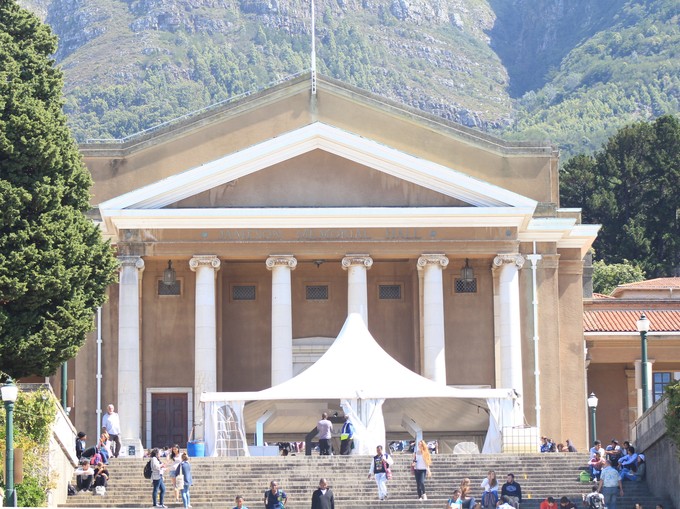
17 October 2022

The University of Cape Town’s vice-chancellor and Council chair have been engulfed in controversy. Archive photo: Masixole Feni
UCT council chair Babalwa Ngonyama faces allegations that she has for months ignored and frustrated requests for a special council meeting to discuss the resignation of former deputy vice-chancellor for teaching and learning Lis Lange, the numerous senior staff resignations, and broader governance issues.
These claims have surfaced in correspondence between Ngonyama and other council members, obtained by GroundUp.
In an 11 September letter to fellow council members, Shuaib Manjra records all the attempts that had been made to prompt Ngonyama to hold a special council meeting. A first request was made on 25 May, and numerous others followed a special council meeting on 20 June that was adjourned by Ngonyama.
An appendix to the letter provides a timeline of the council’s correspondence.
Currently both Ngonyama and Vice-Chancellor Mamokgethi Phakeng face allegations of misconduct surrounding Lange’s resignation. A statement from 15 October announced that an independent panel will be established to investigate Lange’s resignation, as well as “matters related to executive relationships and resignations within and beyond the UCT executive management team”. A report is due by the end of this year.
The letter from Manjra, distributed to council members, states that “the chair has assumed the role of gatekeeper, feeding selective information to council members, and withholding crucial information”.
It says that Ngonyama has “deliberately, and by design, consistently delayed responding to our correspondence; and when she does, she does so at the last minute in order to both frustrate and filibuster processes”.
According to the appendix to Manjra’s letter, after an “inexplicable” delay in response to the 25 May request for a special council meeting, a special council meeting was finally held on 20 June. This meeting was described as unprocedural and as “aided and abetted by the most prejudicial and incompetent chairing”. The meeting was ultimately adjourned by Ngonyama, as she claimed that there was a lack of information on the agenda items.
Numerous attempts to resume this meeting were stonewalled by the chair, according to the correspondence. A special council meeting was finally scheduled for 8 September, but this was cancelled on 5 September by Ngonyama. Again, she claimed that there was an apparent lack of adequate documentation provided on the agenda items.
Ngonyama sent a message to council members claiming that she “asked the proposers of the special meeting to provide appropriate documentation for a resumed meeting. However, they have not yet done so. There is now too little time to circulate a revised agenda for the special meeting that had been rescheduled for this Thursday … and consequently, the meeting has been cancelled”.
But this essential documentation was sent “weeks prior”, according to Manjra’s letter. He called Ngonyama’s attempts to block the special meeting from happening as “prejudicial” and questioned the chair’s “obstinate reluctance to proceed with this meeting”.
A motion of censure against Ngonyama was also sent to council members, requesting:
The letter also noted that the “fissures and fractures which currently characterise council should never compromise good governance and undermine democratic, consultative, cooperative, and deliberative decision-making, in the pursuit of a blinkered agenda”. Additionally, it read that UCT’s council is not “a personal club that expects displays of deferential servility; embraces only loyalists; while shunning, censoring, and silencing critical voices”.
A special council meeting was finally held on 6 October. A vote was held to either establish an independent panel to investigate concerns around Lange’s resignation and governance issues, or to hold an internal and human resources-led investigation.
The latter motion was decided on, with the deciding vote cast by deputy chair Pheladi Gwangwa. Fourteen council members who voted for the independent panel came out with a statement that said the voting process was “flawed” and irregular. The statement also noted that the council members’ requests for a special meeting to discuss the governance concerns have been “systematically thwarted”.
This decision to lead an internal investigation has since been rescinded and an independent panel is going to be established, according to the university.
UCT spokesperson Elijah Moholola did not wish to comment but referred us to the statement of 15 October (linked above) which announced the establishment of UCT’s independent panel. Manjra also declined to comment.